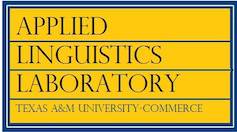Optimal and appropriate input in a second language: The potential of (modified-)elaborated input in distance and classroom learning
DOI:
https://doi.org/10.21283/2376905X.14.246Palabras clave:
ADECUACIÓN DEL INPUT, INPUT ELABORADO, INPUT MODIFICADO-ELABORADO, APRENDIZAJE VIRTUALResumen
Durante la pandemia se ha hecho más dificil para el profesorado valorar si el material lingüístico propuesto es adecuado para el nivel de su alumnado (Conti, 2021). En esta situación, existe el riesgo de que el alumnado esté expuesto a input inapropiado, lo cual puede resultar perjudicial para la adquisición del idioma. La solución propuesta, input elaborado (modificado), está diseñada para aumentar la comprensibilidad sin sacrificar la riqueza del input auténtico, que es crucial para la adquisición del idioma (Long, 2015, 2020; O'Donnel, 2009; Yano, Long y Ross, 1994). Las características del input elaborado hacen que su aplicación sea útil en cualquier tipo de curso de idiomas. Además, en el contexto de la enseñanza virtual, el input elaborado puede ser un instrumento eficaz para tratar el problema de la adecuación del input. Este trabajo analiza los fundamentos teóricos del input elaborado y modificado-elaborado al tiempo que ofrece una revisión de los datos empíricos existentes que respaldan su efectividad.
Descargas
Publicado
Cómo citar
Número
Sección
Categorías
Licencia
Derechos de autor 2021 Ilario Borro

Esta obra está bajo una licencia internacional Creative Commons Atribución 4.0.


